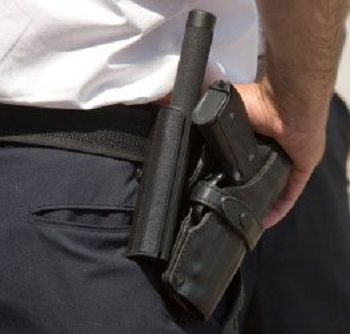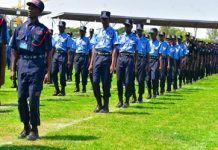A proposed bill would permit private security guards in Israel to carry their weapons during off-duty hours as a buffer against terrorism. Public Security Minister Gilad Erdan has been pushing for the bill in the Knesset in order to put more guns on the street in the hands of civilians as Israel experiences the fourth month of almost daily acts of terrorism by Palestinian individuals wielding knives or driving their vehicles into Israeli pedestrians. Although security forces—police and soldiers—have been deployed in large numbers in sensitive areas, it is often armed civilians who are closest to the scene of a terror act and who respond first. Some 200,000 civilians, all of whom have had security checks, are licensed to carry weapons.
Israel has thousands of private security guards who are posted at cinemas, schools, shopping centers, and other locales. Although they also have security checks, they are obliged to hand in their weapons after duty. Erdan would like to put their guns on the street during off-duty hours as well. The proposed bill, which has yet to pass through the Knesset, says “trained guards carrying a weapon, even beyond their working hours, could contribute to dealing with hostile terrorist activity, thus helping security forces”.
However, the bill is being challenged by a women’s group, which says that such weapons are too often used against wives in domestic disputes. Opposition has come from several women’s groups. The president of the Na’amat Movement of Working Women, Galia Wolloch, says the proposal would add to insecurity, rather than security. “Our concern is based on past experience which shows that weapons that were meant to defend the public were used more than once to murder wives and relatives,” she said. “In addition, such guns can fall into the hands of criminals or of children “and bring irreversible results.”
The issuance of gun permits normally increases during times of tension. During the first intifada, or uprising, which began in 1987, there were 300,000 licensed gun holders. During periods of calm, many licenses are not renewed.








